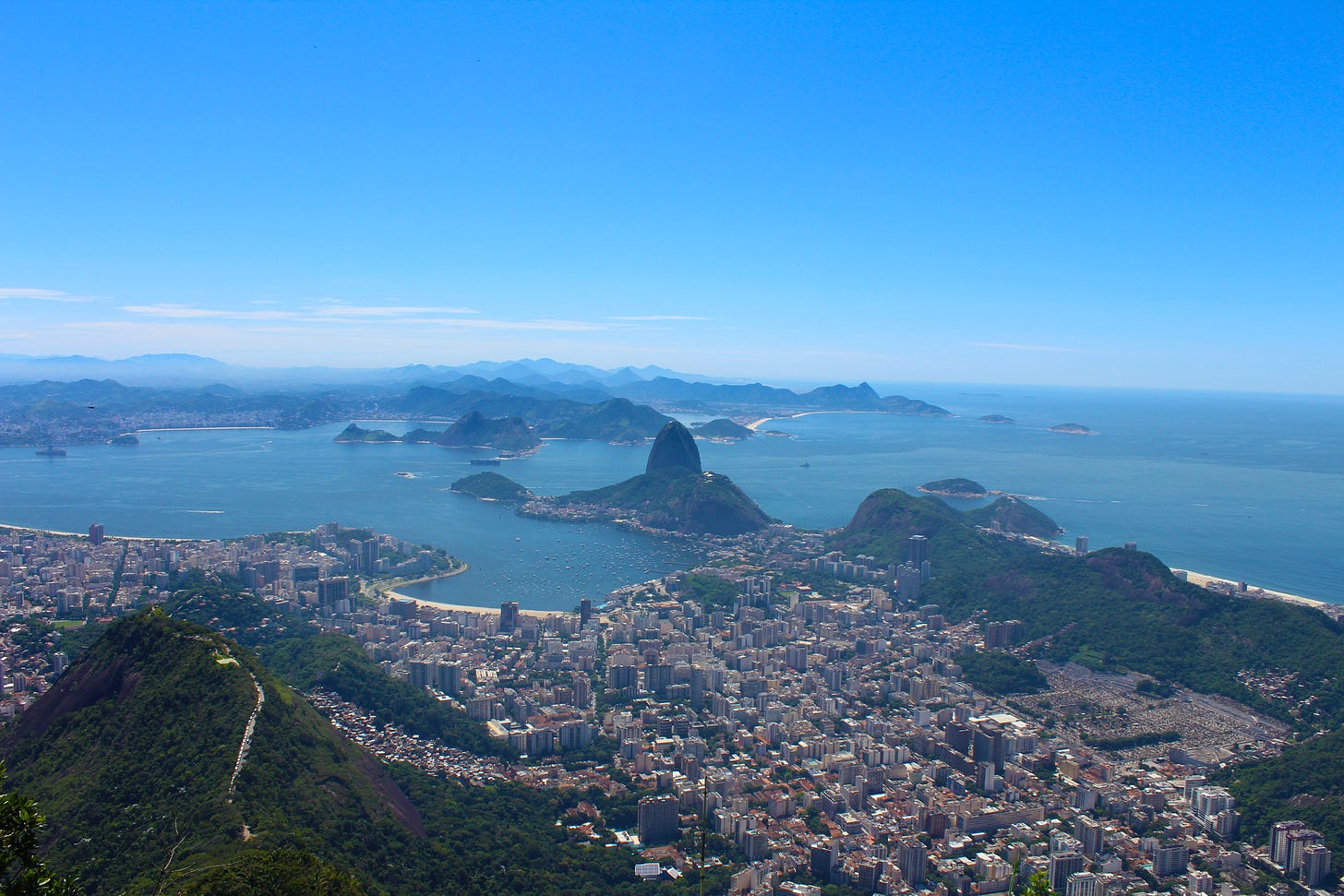When I came home from my mission in southern Brazil, my entire worldview quickly changed.
Just days after I returned from my mission, my mom and I toured a beautiful house for sale near my Idaho neighborhood as a way to pass the time. When I walked into the mudroom of the house, I thought of one woman’s dirt-floor home I’d visited in Brazil and exasperatedly said, “There’s a whole room just for shoes?!”
I quickly began to understand the gaping distance between my standard of living and that of thousands of people in Brazil. The more material blessings I saw in my life, the more guilty I felt as I remembered living among impoverished, suffering people in Brazil.
Months after my experience in the mudroom, while a student at BYU, I was assigned to watch the film Waste Land in my Brazilian culture class. This documentary follows Brazilian visual artist Vik Muniz as he meets several “catadores”—trash pickers—in what was once the world’s largest dump, Jardim Gramacho. These people live near the landfill in Rio de Janeiro and collect recyclable materials from the trash to sell for a meager living. Many of them have worked there since childhood.
Vik gets to know the pickers and photographs them mimicking famous paintings. He then hires them to help him create large-scale replicas of the images, using only dirt and recyclable materials they collect from the landfill. Strategically placed garbage on a warehouse floor, when observed from a distance, creates the shadows and lines of beautiful people holding their heads high.
I learned these individuals’ stories and felt touched by Vik’s sentiment: “If you can put yourself in their own shoes, start living their lives and figuring out what they have to do to just continue living, it’s hard. But on the other hand, when you see the appetite for life that these people have and the way they carry themselves, it just inspires you.”
Living in a foreign country and building relationships with the people there broadened my perspective on the world and our human condition. I realized that I take for granted items and opportunities that seem commonplace to me but unattainable to others. I came home from another culture a changed person, consistently feeling a combination of awe and humility. As Mark Twain put it, “Travel is fatal to prejudice, bigotry, and narrow-mindedness . . . Broad, wholesome, charitable views of men and things cannot be acquired by vegetating in one little corner of the earth all one's lifetime.”
While I am extremely privileged in my economic status—as I believe many Americans are—I realize that my privilege expands to other areas of life and to a wider range of people than Brazilians alone. For example, I was fortunate to be born into a loving, functional family, with parents who taught me the gospel. Furthermore, I was born into an upper-middle-class home in the United States of America—a developed country which, despite its flaws, offers many unique freedoms and opportunities. I have benefited from a secure source of income for which I did not have to work. I was afforded multiple educational and career opportunities that I did not create for myself.
Our privileges are often not of our own choosing; rather, they are given to us at birth. Similarly, people can be born into less-than-ideal circumstances they did not choose. The more I travel and meet new people, the clearer this truth becomes. No one asks to be born into an impoverished home or an abusive, dysfunctional family. No one wants to grow up in a country without opportunities for advancement or lacking basic freedoms. I have often wondered why some of my most Christlike Brazilian friends live in undeserved poverty while I live with so many blessings.
Elder Clark C. Gilbert’s general conference talk “Becoming More in Christ: The Parable of the Slope” helped me immensely as I tried to understand this injustice. Elder Gilbert explains that our Heavenly Parents expect us to improve regardless of circumstances outside of our choosing. We will be judged not on our end point in life, but on the overall slope of our personal improvements over time.
“This principle should give comfort to those who struggle and pause to those who seem to have every advantage,” Elder Gilbert says. Those of us who started off our lives with many advantages should look around and feel grateful for what we have been given. He continues, “We have all drunk from wells we did not dig, and warmed ourselves by fires we did not build.” This powerful idea has become a mantra for my life. I am immensely grateful for the rewards I reaped without sowing. But I’ve often pondered whether I can give something more than gratitude in recognition of my blessings.
The final scenes of Waste Land explain that Vik Muniz eventually raised over $250,000 from sales of the prints of his remarkable portraits. The money he earned allowed the trash pickers to buy a truck, purchase other equipment, and start a learning center with a library and computers in the landfill. Vik says this project “started with the feeling that we should do something that will convert back to [the pickers].” I am inspired by Vik’s example to share the benefits of my privilege in some way.
While I still haven’t determined what giving back looks like for me, I have come to realize that we need not travel to Brazil or any other developing country to help the underprivileged. Exposure to other cultures is important to recognize the advantages we have, but the needy are all around us. Whether we live in a developing country’s largest landfill or in a Beverly Hills mansion, we are surrounded by people in need of physical, emotional, or spiritual replenishing.
I sincerely hope that someday, I will have the influence and opportunity to serve the world’s underprivileged people in a significant way. For now, I hang onto the belief that my small efforts to stay humble and share my blessings with others can lift others up. I have made an effort to show kindness and understanding to friends experiencing mental health struggles. I have shared my meals with other college students despite my limited food budget. I have tried to be more Christlike in my interactions with and service to others. And I have often expressed gratitude to my Heavenly Father for all the metaphorical water I’ve drunk from wells I did not dig.






Beautiful article!